How to Walk as the Sun Comes Up
When night turns to day I think about still prayer and look at the moon
Every morning the last few mornings I’ve seen a little bird that can’t lift off the ground. Bruce thinks she’s a junco, but maybe she’s the firebird grounded, telling us both something as it hops on ahead of us. Apparently in Russian fairy tales a person finds a feather and searches for the bird, starting a quest. I think of Abraham called from a prosperous family to an unknown land, promised by God that it would be his and his children’s.
I’ve seen the junco at odd times, first thing in the morning, and during afternoon walks. With all the predators (cats) around I’m surprised she’s still alive. She looks like she’s leading me somewhere, but I walk on by down the road or finish walking the dogs behind the house. The other day I saw her lift off the ground just a bit. I’m not sure what she’s calling me to, though perhaps it’s being rooted and grounded in this place and this life, at least for now. In I Thessalonians 4:11- 12 Paul tells us to “aspire to live quietly and to mind your own affairs and to work with your hands as we instructed you so that you might walk properly before outsiders and be dependent on no one.”
When I walked this week, I began in the dark and ended in the light. I wanted to get Omalola outside before she peed in the house. You’d think I’d be more vulnerable to speeding cars (and that awful dream of being chased on this road) but I’m not because I can see how the headlights light up the "Slow. Turn." sign up ahead. I step into the ditch, raise my hand to wave, the other gripping the dogs' leashes all the while wishing the car would slow down.
There’s something, I mean something to walking into stillness when the night moves to day, when the sun rises. You can almost feel the world tilt. They say this is liminal time, a thin space, where saints and angels cross the threshold to here, but there is no supernatural vision, just the sky as it changes day to day, minute by minute.
A few weeks ago I walked out my complaints to the Lord, a good talk. It was healing to whine, cry and complain when life has gone awry. The words and the truth that Jesus is a high priest who has suffered everything we’ve suffered, gives me courage to speak my fear. “But I call upon God, and the Lord will deliver me. In the evening, in the morning and at noon day, I will complain and lament and he will hear my voice. He will bring me safely back from the battle waged against me; for there are many who fight me. God who is enthroned of old, will hear me and bring them down” (Psalm 55: 16 – 19 Book of Common Prayer). Whenever I hear this Psalm read, I also think of Jesus’ heart cry when he was betrayed by Judas.
There are times when I walk, and look at the blue and pink to the west, where light hasn't quite arrived yet, I start to pray for friends who are hurting. All my life I’ve marched through lists of names, partly to counter my own self centeredness. Sometimes these prayers are for me, to soften my heart, to send blessing back when I’ve been hurt. More and more my prayers have become more simple. More and more I no longer know what to tell God. Sure sometimes I need to speak my hopes for them knowing that God will do what he will with those hopes.
In Writing the Icon of the Heart, Maggie Ross has offered insight that eases my question how to pray, as those prayers sink more and more into silence. “In other words, the life we have is a share in God’s life, so that when we pray on behalf of another we are creating a space for God to use that life as is most appropriate, according to God’s light, not ours. In this space our life is expressed as God’s life, God’s tears, God’s offering, God’s power. We are praying, receptive to the mysterious workings of God’s love through us in ways that should be no concern of ours if we are rightly focused on God, if we are beholding” (31).
So much is unsettled in our culture. It feels like Election Day won’t settle us down, unless we resist and choose to settle down, choose to go about our lives as Paul admonished at a time when the ruler, Caligula, was half mad, and there were very real threats to the Jewish people. In the very least I am learning that it’s no good to put my trust in princes.
Because I don’t always have words, I go silent and nudge my thoughts back to “Thank you Lord.” I can feel the expansiveness that Maggie Ross talks about in Writing the Icon of the Heart. She says, “This silence is not the absence of noise; it is the vast interior landscape that invites us to stillness. At its heart, in our heart, it is the Other” (xvii). In another place, she says, “We come to realize that in this spacious silence of beholding, the whole of creation is present, and we are given the eyes of compassion. We realize that every moment is prayer, life is prayer, and it is our task to learn to immerse ourselves in this wellspring of silence so our lives arise and flow from it” (Icon, 32).
I look up at the moon, rising ahead of the sun, clear, beautiful, becoming thinner on both days I saw it. I followed this super moon from her bright bellied obesity that lit up the night like it was day, shadows of trees with leaves snaking along the ground and up the barn. When she hadn’t announced herself at sunset, she was quiet enough, so we could see the comet. But as I walk these early mornings, she looks like something I might see in a jeweler’s case. She’s beautiful. That slim. I want to slide her over my finger, saying to the jeweler, I’m just looking. I think about Ted Kooser’s poem posted on Sunday, one of the first things I see on Facebook.
A Waning Moon, Late October
Each morning she carries a little less light
in her apron as she comes back from wherever
she gathers it, from where there must be
less and less to gather. Always that same
white apron, pinched up by the corners
making a pocket, always the same slow pace
coming back, taking her time.
Ted Kooser, October 27th, 2024
I walk by Calamity’s paddock. One day she is there, walks over to us and sticks her head through the fence. I feel bad because I forget to bring her hay cubes. She is friendly, amiable horse. I learned a bit of what it means to take up my cross a few years back when the neighbor needed help applying medication to her eye. She had moon blindness, white film slowly covering it. So every day for several months, twice a day, Bruce and I drove over there and slid steroid into her eye. I practiced putting my desire to just walk into my own chores behind me. I walked into their yard, no matter the weather, to try to save her eye. What is wild is that lately her eye looks like it has cleared. She can see me flick my finger.
But Mr. P is in his eighties, with legs that don’t work well. He’s tired of winter chores. I have prayed he’d find her a home. The other day we saw an empty stock trailer drive up the road. I watched it park behind his barn. She loaded easily and was gone. Her empty paddock is like a missing tooth in the neighborhood.
While I was taking pictures to capture some fall color, I snapped one of the oak tree that is dying. There is an open wound with fungi growing in it, big plates like you see in the woods. Above, some branches are dying, while others live. I took his picture. But when I looked on my phone I saw a ghost tree behind it, that wasn’t quite the same. The ground was higher. It looked as though I’d taken a picture through glass but I hadn’t. Had the phone opened a look into another dimension like it had translated the red haze of the Auroras into gorgeous dolomites of red and green light? Had it shown me the soul of the dying tree beginning to move along? I just hope it stands sturdy in these wild winds and doesn’t fall on our house. (I’m not sure the image will come through here, but here it is.)
Enchanted World
There’s talk these days of how the world is enchanted. Rod Dreher has a new book, Living in Wonder that says “the renewal of the west will be mystical or not at all.” According to an interview in The National Catholic Register, “This book, which the author conceives as a manual, aims to teach the reader ‘how to seek and how to find’ true enchantment: in other words, ‘to see the divine with a purified heart.’”
But I think we can seek the experience of the divine for the sake of the experience, rather than for the divine Himself. Ross says in The Fountain and the Furnace, “As with discernment of any other gift of God the biggest danger is ending up wanting the gifts for the sake of the gifts and not for the sake of the kingdom” (168).
I feel the pull to be a wild saint, to be the kind of person the wild cats, rub up against my legs, instead of crying for me to leave the barn. I want to see God. I want to light up like Moses.
I remember as a young girl standing by the elderberry bushes growing alongside the Big Barn. It was so clear I could see the bubbles in the Milky Way. I wanted to see God like the guys in the Bible, but I didn’t ask because I was terrified at the thought He might show up with those burnished bronze legs, and hair so white I couldn’t look, and blazing eyes and a sword flying out of his mouth. I want to see God but then again I don’t. The terror would kill me. I don’t even want to hear his voice calling in the night, no I don’t, except through the Bible, his love letter to me, or what people tell me, or my pastor, or even books. I don’t want to lose my mind.
This week I listened Winn Collier’s podcast conversation with Andrew Peterson where they talked about the communion of the saints. Winn recounts a conversation about Peterson’s father. “I told a friend yesterday who was just remembering with me, just thinking about Eugene today, appreciating the ripples of your dad's legacy. And I simply wrote back, he's never been more alive than he is right now. And with that doctrine of the Communion of Saints, I've come to realize that he's still with us, and he's joined that cloud of witnesses that are praying for us. And it's kind of rooting us on. And so I have a sense of encouragement. Since we are surrounded by so great a cloud of witnesses, let us run with perseverance.”
Earlier in the conversation Collier and Peterson talked about how Jesus wants to be close to us, right now, not in some apocalyptic future. “Jesus wants to be with us in the circumstances of our lives. So he comes alongside us, enters into that, weeps with those who weep. And then this, I don't know, maybe it is impatience, but it's, I think I wonder what it would feel like if I more fully experienced Jesus as, I can't wait for you, Eric. I'm so eager to be close to you and to be reunited with you. And I, I'm not going to wait for the final resurrection in some eschatological sense. I want you now,” Eric Peterson said.
Just out of sight in my memory/mind I see Jesus climbing into a cave looking for me, the cave where I’ve joined the others who cry for the rocks to hide them from the wrath of the little lamb who was slaughtered. The rocks smell alkaline. I shiver and drop into sleep. The fierce man I see in icons, his hair parted down the middle, one eye kind, one eye frightening, ducks under a ledge. He’s no brighter than the moonlight. He touches me with his toe. He says, so gently my heart breaks, “What about there is no condemnation for those in me don’t you believe? What about what I’ve said, “Therefore do not pronounce judgement before the time, before I come, who will bring to light things hidden in darkness” (I Cor. 4: 3) Come. Come with me. I’m bringing you to the light. Bringing you to receive your commendation. He smelled like corn when the plants make love, soft and green.
Works Cited
Collier, Winn. Low in the Water: Eric Peterson — Full Conversation, Oct 28, 2024
Holy Bible English Standard Version. Crossway, 2016.
Kooser, Ted. "A Waning Moon, October 27, 5:29 Am." Facebook. https://www.facebook.com/ted.kooser.1
Ross, Maggie. Fountain and the Furnace. Eugene; Wipf and Stock. 2014
Ross, Maggie. Writing the Icon of the Heart. Eugene: Cascade. 2013
Tadie, Solene. “Rod Dreher: The Renewal of Christianity in the West Will be Mystical or Not at All. The National Catholic Register. https://www.ncregister.com/interview/rod-dreher-on-living-in-wonder
The Book of Common Prayer. Cambridge University Press, 2005.

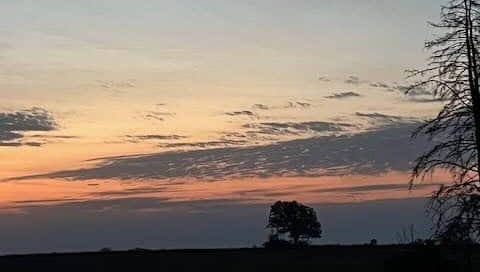



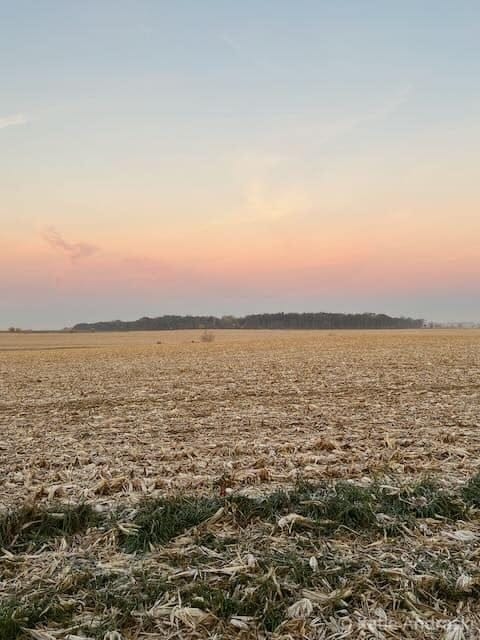
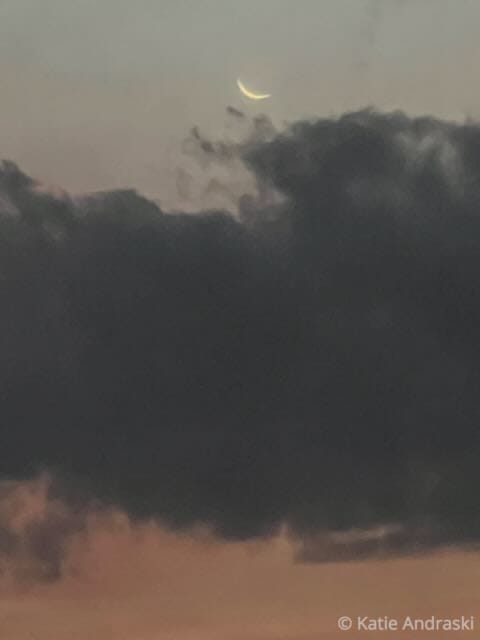
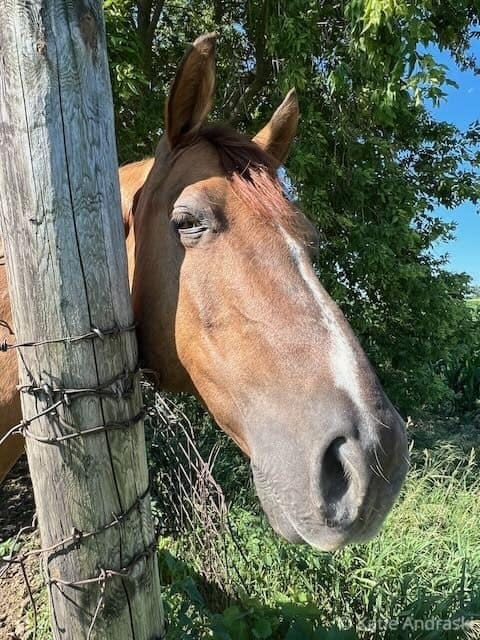

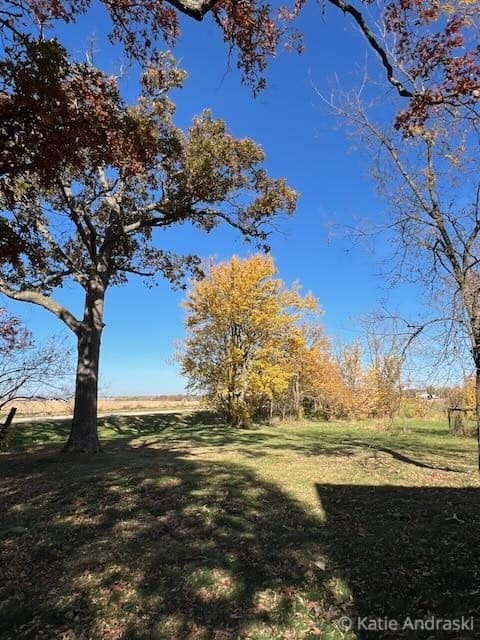

So many great thoughts and images in this post, Katie. I love your writing. And that poem is gorgeous too.
May I share my description of the moon over Tall el Hammam the first time I went there? From Discovering the City of Sodom.
Every visitor should come to the Dead Sea at night the first time. Going down into the valley of deadness, every driver tap, tap, taps his brakes. A persimmon-colored moon looks like a hand cupped to the sky, asking for rain. Across the water, the lights of Israel flicker.
Water bottles cringe and collapse. Everything inclines toward and yields to the loss of altitude. In the distance, the hotels are outposts of green and fluorescence along the shore of the great silver lake.
Really, Really beautiful, Katie, thank you!